Governance and Finance
Corporate governance today is about more than just making profits for shareholders. It now aims to balance the needs of all stakeholders-employees, investors, creditors, and business partners. Good governance helps companies run better, attract talent, gain customer trust, and lower financial costs. Conversely, poor governance can lead to scandals, job losses, and broken contracts.
The “Governance and Finance” research group studies how governance works in modern financial markets. One of the focuses is on how firms choose, motivate, and keep talented leaders, especially CEOs, since exemplary leadership is key to company success.
The group is also interested in investigating how changes in financial markets, like the rise of big shareholders, activist investors, or even creditors, affect company decisions. The goal is to understand how different players and institutions influence company behavior and what that means for the future of business.
Research Cluster
Financial Resilience and RegulationYour contact

- Department Financial Markets
Refereed Publications
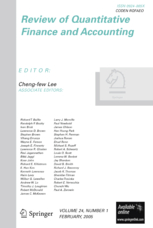
Agency Cost of CEO Perquisites in Bank Loan Contracts
in: Review of Quantitative Finance and Accounting, May 2021
Abstract
This study investigates the association between CEO perquisites and bank loan spreads. We collect detailed data on CEO perquisites from the proxy statements of S&P 500 firms between 1993 and 2015 to study this issue. The empirical evidence supports the agency cost view that the lending banks demand significantly higher returns (spread), more collateral, and stricter covenants from firms with higher CEO perquisites. We further confirm that the effect of these perquisites remains after we control for various corporate governance and agency cost factors. We conclude that banks consider CEO perquisites as a type of agency cost when they make lending decisions.
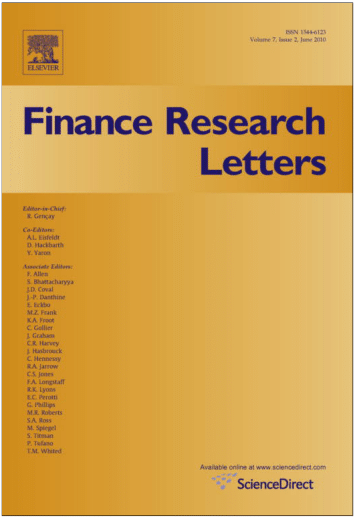
VC Participation and Failure of Startups: Evidence from P2P Lending Platforms in China
in: Finance Research Letters, May 2021
Abstract
We investigate how VC participation affects the failure of startups. Using a unique dataset of the survival of peer-to-peer (P2P) platforms in China, we identify two types of failures, bankruptcy, and run off with investors' money. The Competing Risk Model results show that while VC participation reduces bankruptcy hazard, it has little impact on the runoff failures. The findings are robust to the use of matched subsamples that disentangle the influence of pre-investment screening by VC. Further analysis of exit routes reveals that conditional on failure, VC participation is associated with a higher chance of running for the exit.
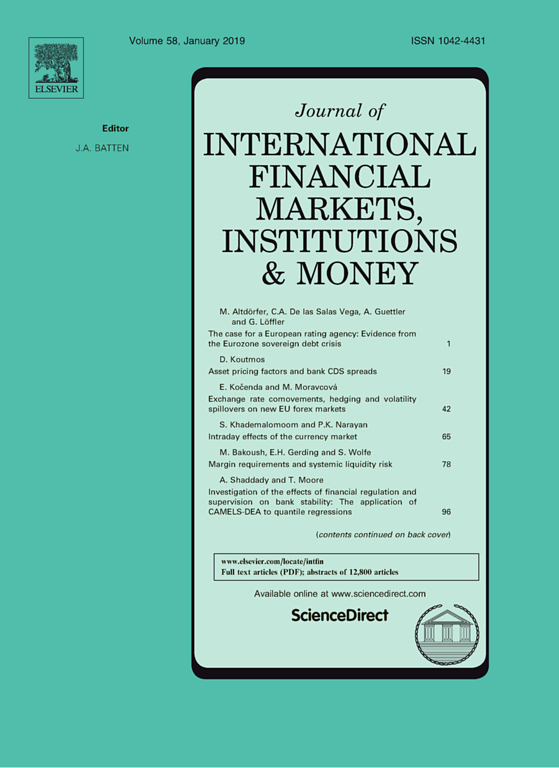
Are Credit Rating Disagreements Priced in the M&A Market?
in: Journal of International Financial Markets, Institutions and Money, May 2021
Abstract
This paper examines the effect of credit rating disagreements on merger and acquisition (M&A) decisions. We show that acquirers with split ratings prefer to use stock to finance their acquisitions. More importantly, we find that acquirers with split ratings experience lower announcement returns. Further analysis shows that overpayment by acquirers with split ratings is concentrated in acquirers with entrenched managers. Our results are robust to alternative identification strategies. Overall, our evidence indicates that credit rating disagreements are heavily priced in the M&A market.

Financial Analysts' Career Concerns and the Cost of Private Debt
in: Journal of Corporate Finance, April 2021
Abstract
Career-concerned analysts are averse to firm risk. Not only does higher firm risk require more effort to analyze the firm, thus constraining analysts' ability to earn more remuneration through covering more firms, but it also jeopardizes their research quality and career advancement. As such, career concerns incentivize analysts to pressure firms to undertake risk-management activities, thus leading to a lower cost of debt. Consistent with our hypothesis, we find a negative association between analyst career concerns and bank loan spreads. In addition, our mediation analysis suggests that this association is achieved through the channel of reducing firm risk. Additional tests suggest that the effect of analyst career concerns on loan spreads is more pronounced for firms with higher analyst coverage. Our study is the first to identify the demand for risk management as a key channel through which analysts help reduce the cost of debt.
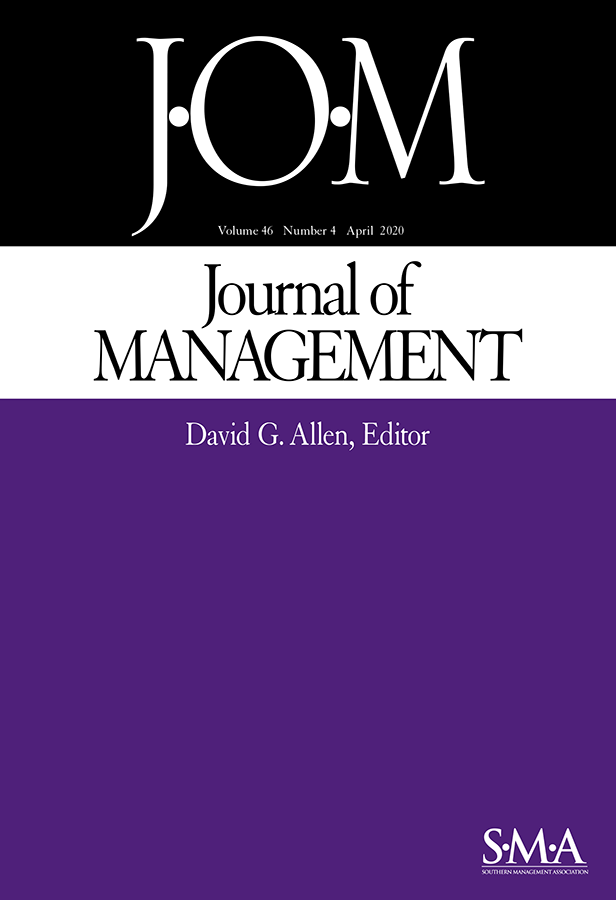
The Influence of Bondholder Concentration and Temporal Orientation on Investments in R&D
in: Journal of Management, No. 3, 2021
Abstract
Although innovation can be a critical source of competitive advantage, research has found that debt can erode management’s willingness to invest in R&D. In this article, we employ a stakeholder bargaining power perspective to argue that this effect is most pronounced when the firm’s bonds are concentrated in the hands of bond blockholders. Furthermore, we contend that the temporal orientation of bondholders influences this relationship. Specifically, while it is commonly assumed that bondholders have a limited temporal orientation that induces them to focus on short-term value appropriation, we argue that some bond blockholders adopt a long-term temporal orientation. This orientation, in turn, makes them more inclined to support long-term value creation for the firm in the form of enhanced investments in R&D. Moreover, while agency theory suggests that there is an inherent conflict of interest between shareholders and bondholders, our results suggest that the temporal orientation of investors (i.e., both shareholders and bondholders) matters much more than whether they invested in the firm’s equity or its debt.
Working Papers
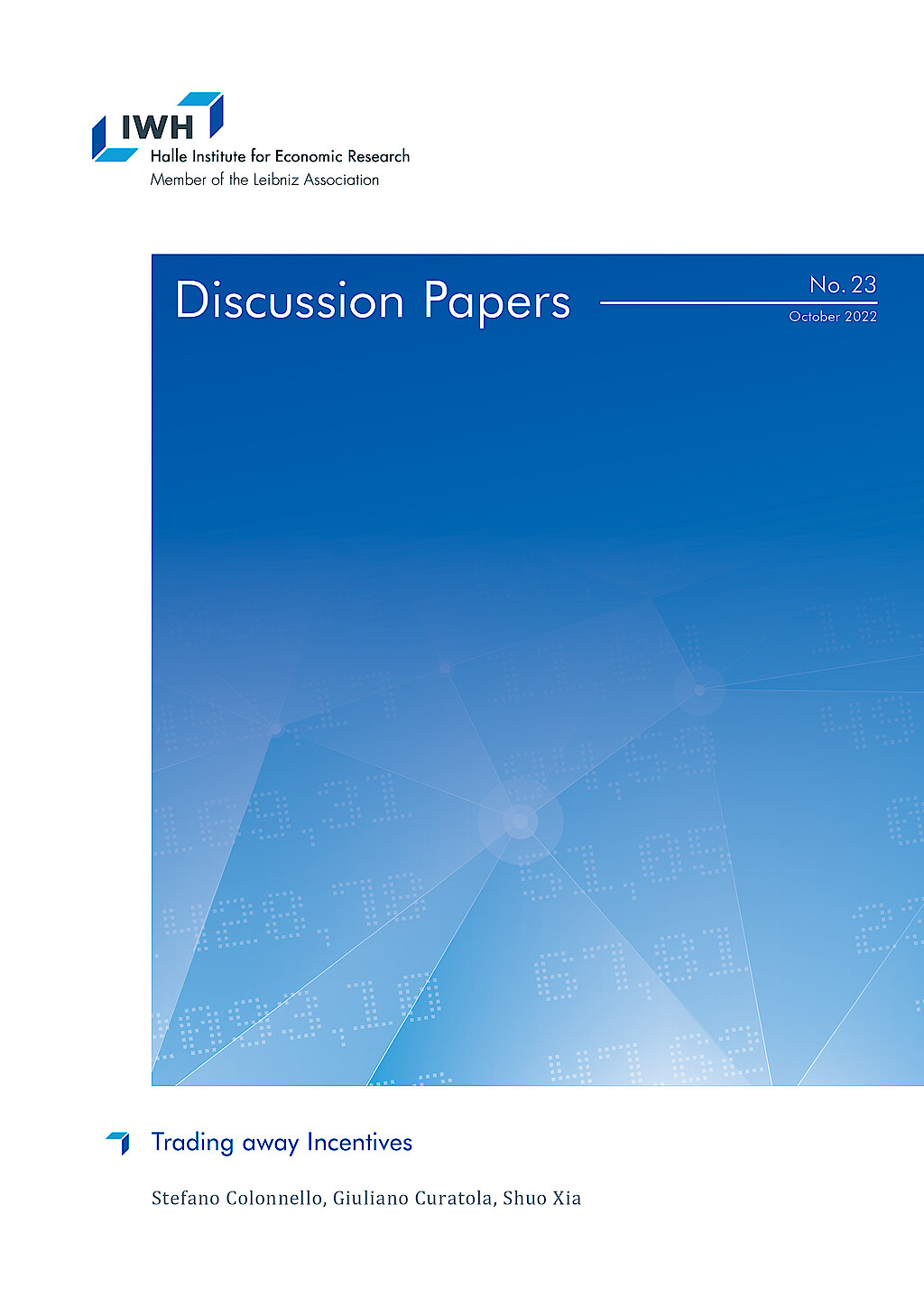
Trading away Incentives
in: IWH Discussion Papers, No. 23, 2022
Abstract
Equity pay has been the primary component of managerial compensation packages at US public firms since the early 1990s. Using a comprehensive sample of top executives from 1992-2020, we estimate to what extent they trade firm equity held in their portfolios to neutralize increments in ownership due to annual equity pay. Executives accommodate ownership increases linked to options awards. Conversely, increases in stock holdings linked to option exercises and restricted stock grants are largely neutralized through comparable sales of unrestricted shares. Variation in stock trading responses across executives hardly appears to respond to diversification motives. From a theoretical standpoint, these results challenge (i) the common, generally implicit assumption that managers cannot undo their incentive packages, (ii) the standard modeling practice of treating different equity pay items homogeneously, and (iii) the often taken for granted crucial role of diversification motives in managers’ portfolio choices.
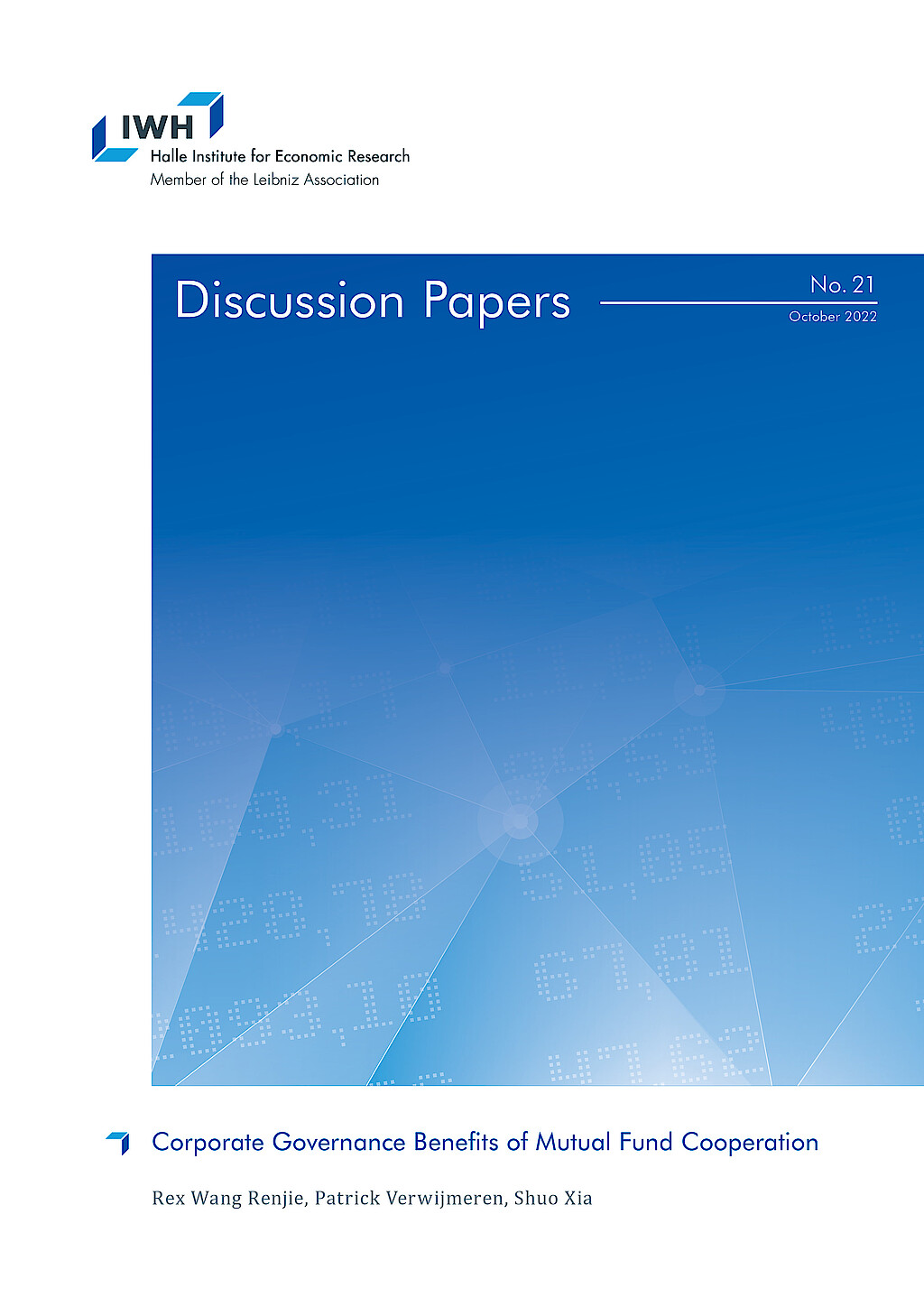
Corporate Governance Benefits of Mutual Fund Cooperation
in: IWH Discussion Papers, No. 21, 2022
Abstract
Mutual fund families increasingly hold bonds and stocks from the same firm. We study the implications of such dual holdings for corporate governance and firm decision-making. We present evidence that dual ownership allows financially distressed firms to increase investments and to refinance by issuing bonds with lower yields and fewer restrictive covenants. As such, dual ownership reduces shareholder-creditor conflicts, especially when families encourage cooperation among their managers. Overall, our results suggest that mutual fund families internalize the shareholder-creditor agency conflicts of their portfolio companies, highlighting the positive governance externalities of intra-family cooperation.

Why Do Workers at Larger Firms Outperform?
in: Working Paper, 2020
Abstract
Workers at larger firms outperform on average. For example, equity analysts working for more reputable brokerage firms produce more accurate earnings forecasts. Analysts employed by the highest ranked brokerages are about 6% more accurate than those employed by the lowest ranked brokerages, which is equivalent to an advantage of 17.5 years of more experience. This outperformance is driven by two significant effects: more reputable firms provide more resources that improve analysts' forecasting ability (influence), while more reputable firms also attract more talented candidates (sorting). We estimate a two-sided matching model to disentangle these two effects. We find that the direct influence effect accounts for 73% of the total impact while the sorting effect accounts for the remaining 27%.

Lame-Duck CEOs
in: SSRN Working Papers, 2018
Abstract
We examine the relationship between protracted CEO successions and stock returns. In protracted successions, an incumbent CEO announces his or her resignation without a known successor, so the incumbent CEO becomes a “lame duck.” We find that 31% of CEO successions from 2005 to 2014 in the S&P 1500 are protracted, during which the incumbent CEO is a lame duck for an average period of about 6 months. During the reign of lame duck CEOs, firms generate an annual four-factor alpha of 11% and exhibit significant positive earnings surprises. Investors’ under-reaction to no news on new CEO information and underestimation of the positive effects of the tournament among the CEO candidates drive our results.

Selection Versus Incentives in Incentive Pay: Evidence from a Matching Model
in: SSRN Working Papers, 2018
Abstract
Higher incentive pay is associated with better firm performance. I introduce a model of CEO-firm matching to disentangle the two confounding effects that drive this result. On one hand, higher incentive pay directly induces more effort; on the other hand, higher incentive pay indirectly attracts more talented CEOs. I find both effects are essential to explain the result, with the selection effect accounting for 12.7% of the total effect. The relative importance of the selection effect is the largest in industries with high talent mobility and in more recent years.










